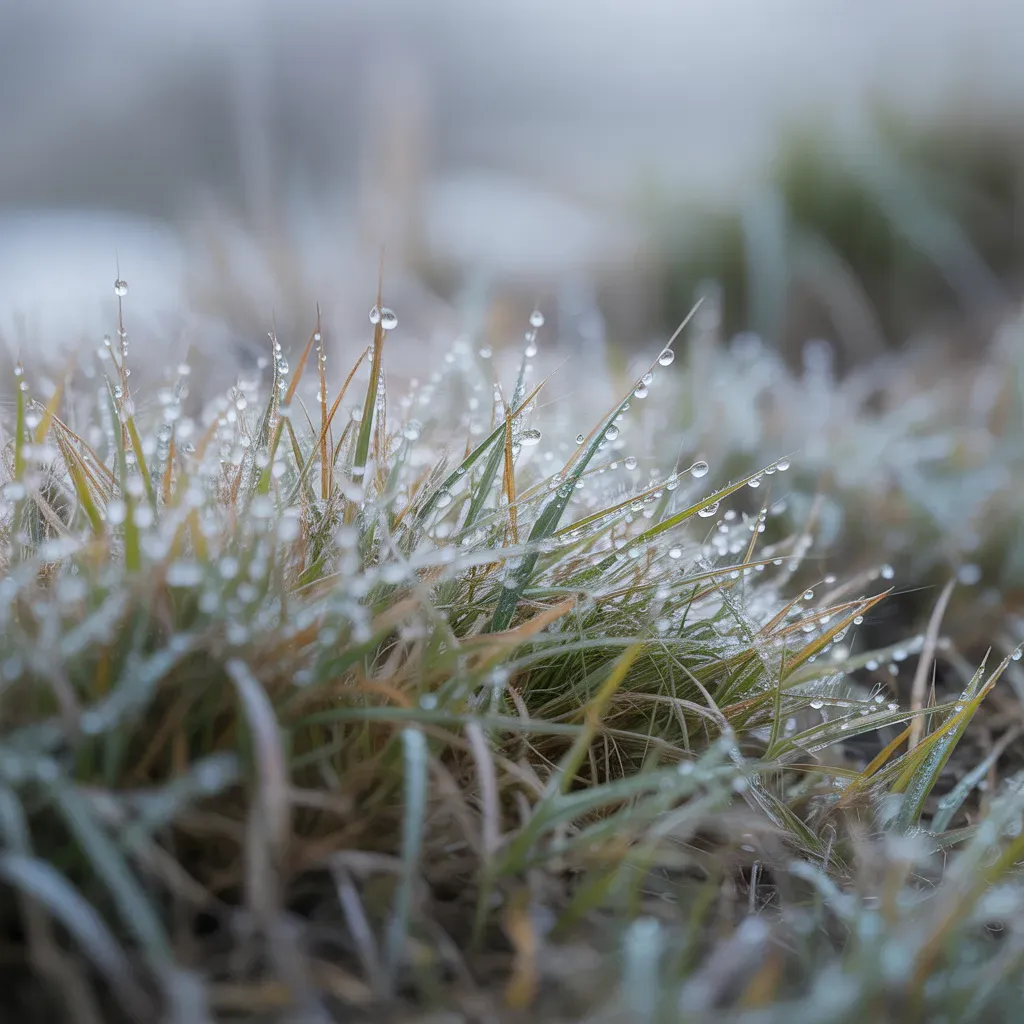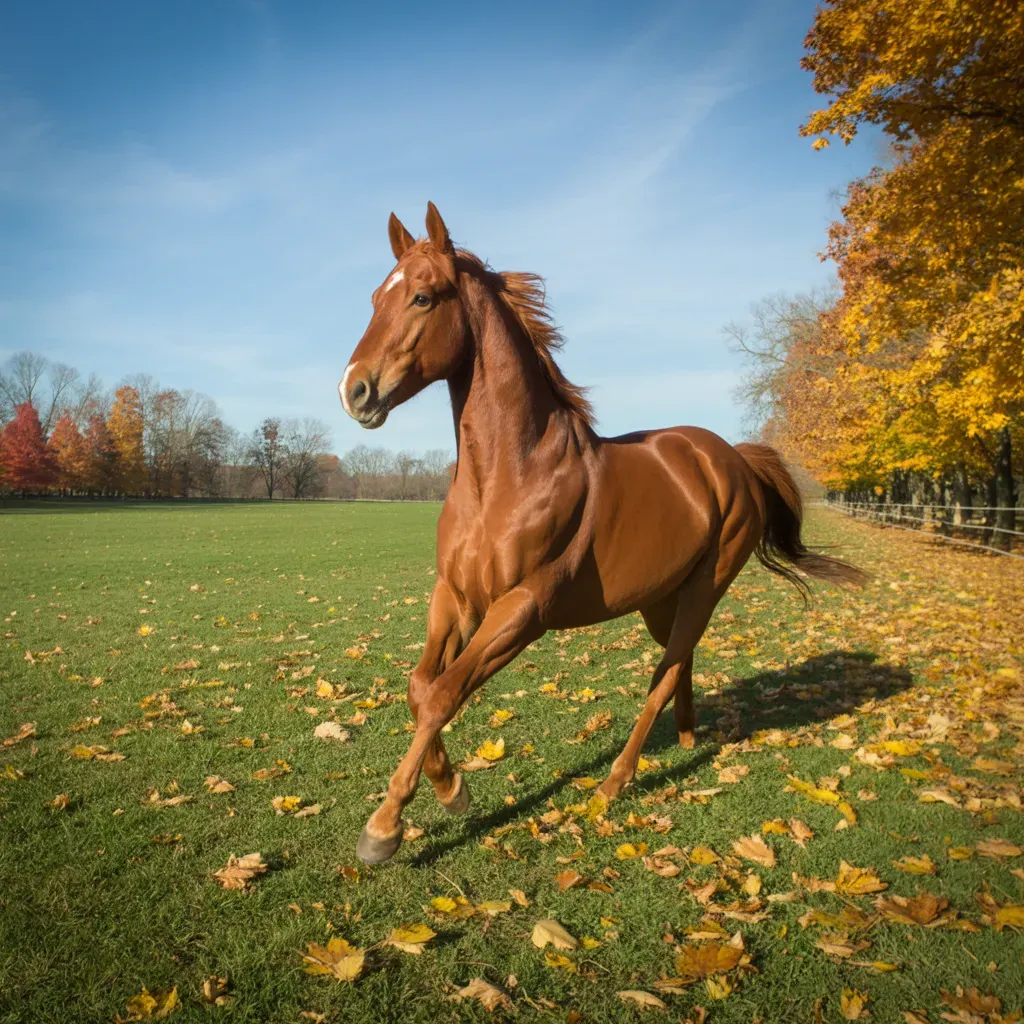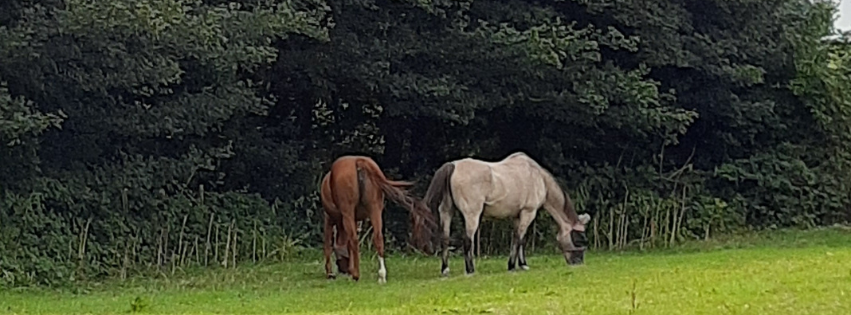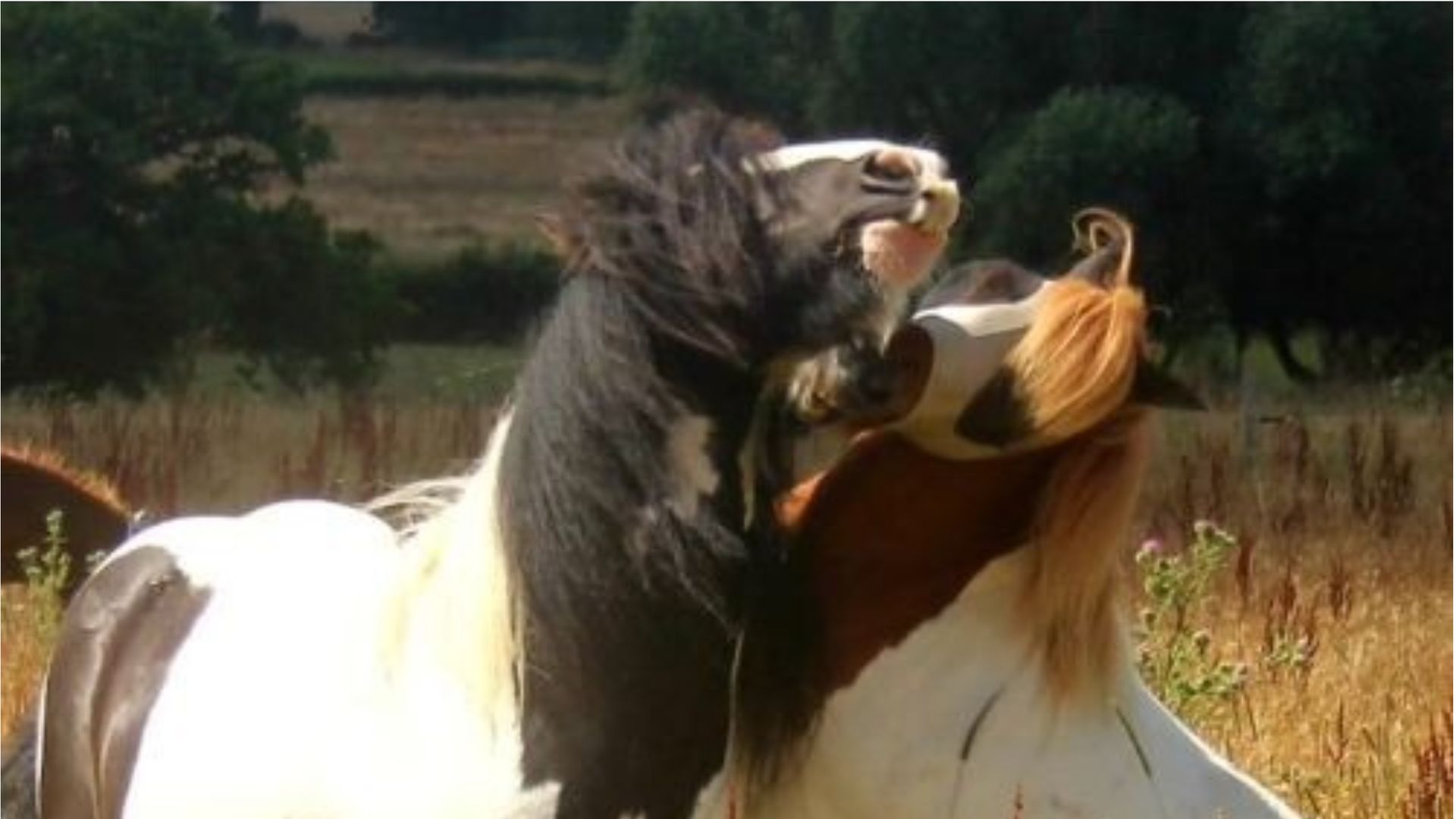Navigating the Forages - hindgut heroics and the feedbowl fiasco
A gut-busting journey through how to feed our horses
Grass, hay, haylage, drylage, alfalfa, straw … so many different forages out there for us to feed to our horses. But why? I’m sure you don’t need me to tell you that a horse is nothing more, and nothing less, than a hindgut (large intestine) grass-forage fibre-fermenter.
And for a very good reason. Those friendly hindgut fibre-fermenting microbes produce vital metabolites from cellulose fibre, which is only found in grass stems, that help our horse thrive, i.e. those volatile fatty acids which create the horse’s energy (butyrate, acetate and proprionate), as well as other essential nutrients such as certain vitamins (in an equine-appropriate 'activated' form, and not off-the-shelf synthetics).
So, grass it is then. However, we won't find cellulose fibre in the short neon-green grass blades that we see in every turnout field, although our horses will still chow down on this bright green stuff because it’s sugary and carby and therefore yummy. And why these days so many of us spend more time keeping our horses off the grass as we watch them become miserable and in pain from hindgut acidosis/dysbiosis, which turns the faeces into very unwelcome faecal water - the first red flag that trouble's brewing.
Why? Because those grass fructose starches are what the unfriendly gut microbes feed on. Meet lactic-acid bacteria (LA bacteria). And the more they feed on starch and sugar, the more they’ll multiply by the billion and kill off the friendly hindgut microbes that do all the beneficial fibre-fermenting work.
Once the LA bacteria are in control and have colonised to bursting point – and rest assured this will happen unless we’re onto it – they’ll then leak up into the small intestine, taking the acidic faecal water with them, so we now have SIBO (small intestine bacteria overload). We now have a horrible mix of putrefactive undigested food matter, faecal water and toxic pro-inflammatory, gut-damaging LA bacteria swilling around in the small intestine, which creates intensely uncomfortable bloat in the horse’s barrel.
Eventually this inflammation will disrupt the cellular structure of the intestinal lining, tearing it apart like a zipper, creating leaky gut syndrome. This now means we’ve now got that highly toxic swill leaking into the bloodstream. Now we’re really in trouble.
Cue an almighty immune system panic, now desperately going into overdrive to try and control the toxicity, while the liver will now be under massive extra strain trying to metabolise them all. Meanwhile, the kidneys are unable to keep up with the huge queue of toxins to excrete. We’re now approaching meltdown. Cue exhaustion, laminitis, auto-immune syndromes, even potential toxic shock. Basically one very sick horse. And this is the very topic that make up most our client enquiries here at EquiNatural.
The haylage/LA bacteria connection
So how do LA bacteria get into the hindgut in the first place? By eating haylage/drylage. Both are plastic-wrapped, and now here's a thing. Any natural plant produce wrapped in plastic will ferment – you’ve probably seen what happens when that out-of-date salad bag has wilted in your fridge, and it's bacteria that triggers fermentation. If you’ve pickled onions, beetroot, red cabbage, whatever ... you’ll know this. Kombucha? Bacteria. Kimchi? Bacteria. Live yoghurt? Bacteria. Lactic-acid bacteria to be precise, which is a perfectly well-recognised and accepted member of the human gut biome, but not the equine gut biome.
The equine hindgut depends on a very precise neutral pH value of around 7, which makes LA bacteria the hindgut’s worst enemy. The clue's in the name - their 'acid' nature converts the hindgut pH to acidic, sometimes as low as 1.3, and this acidic environment kills off the friendly fibre-fermenters in the process. Result? Dysbiosis - an imbalance between the types of organism present in the gut's natural microflora in the microbiome - with an ever-increasing population of LA bacteria crowding out and continuing to kill off what’s left of the friendlies. Which also means … that vital job of fermenting the fibre is no longer happening.
Of course there'll be many people shouting out that their horses are fine on haylage. I get this - a couple of winters on haylage and all may seem fine for typically the less metabolic, native-type horse or pony. However, it's all about accumulation - the systemic acidic haylage-effect can take time to accrue before we see symptoms - apparently round 2-3 years, so don’t be misled into thinking a horse is fine on haylage. All explained in more detail in our
Haylage page.
And just as an aside, if a mare with foal was fed haylage, it's likely that the foal will start life with an imbalanced biome, as a foal will eat their dam's droppings to build their own microbiome (coprophagia).
Prebiotics - grass-species diversity is key
Back to grass, and it’s a bigger story than making sure we feed stemmy grass for the fibre, because … we should never feed just one grass species, i.e. rye that’s typically found on a former dairy farm, or those pre-wrapped bags of timothy haylage we’ve all seen in the feed merchants.
Why? Because those essential hindgut fibre-fermenting biome colonies need to feed themselves from a multi-diverse range of different grass species’ prebiotics, so they can do their job properly.
So what are prebiotics? They're compounds in food that enable growth and activity of beneficial microorganisms in the GI tract, whether human or horse, and our horse’s hindgut biome will only get these from multiple different grass species. Same for us needing a variety of different veggies or different salad leaves on our plate to feed our own differing colonies of microbes in our own gut biomes. 'Feed the rainbow,' as the saying goes for us.
So for our horses it has to be meadow hay. And lots of it, on an adlib basis so they never run out, otherwise they’ll stress and get ulcers. (Which is a whole other story – see our Ulcers page).
Straw & Alfalfa
I won’t blurb on about these here as they both have their own pages on the website, but in a nutshell - straw? It's a No. Alfalfa? Agreed, some horses may seem fine on it, but certainly for the metabolic horse it's best avoided, so says Dr Kellon. Long and short, alfalfa doesn't suit every horse.
Finally, the feedbowl
On top of us potentially feeding the wrong forage, us humans then go and spoil it further by giving our horse a feedbowl full of what I call C.R.A.P. ingredients. That’s not me being deliberately rude; it stands for Carbs, Refined, Artificial, Processed. Aka fake junk and bulk fillers. We can’t even call it junk food, because it’s not food. Food is meant to nourish and fuel, whereas for starters these C.R.A.P ingredients aren't equine-gut appropriate, and are known to be gut damaging and pro-inflammatory; they don’t nourish the cells one iota.
Another quick digress, and a quote for you from our Why what we feed has to be right page (which is also where you'll find the pages on Alfalfa, Hay, Haylage, Straw, and many more). Back in 2006 when my horses became chronically sick, and I was starting to learn how what we fed our horses significantly affected them, I spent a ton of time on Google and many forums. There was a post I came across on the HHO forum, around 2006/7 which resonated so much with me that I kept it and quoted it in our first website. It read:
"I worked for a feed company for a couple of years. We were encouraged to sell their feed of course and diss other brands. What went into them was whatever was cheap and laced with molasses, add a few aromatic herbs and Bob's your uncle, ****** feed. I don't do that anymore."
The poster actually mentioned the brand she worked for, which sad to say is a very well known brand that we all see in every feedroom, but I took the name out in case I got sue’d.
So how do we know if we’re feeding our horses C.R.A.P.? The best suggestion I can give you is to always check the ingredients on those shiny feedbags, then compare them with what’s on our
https://www.equinatural.co.uk/the-feedbowl. page. Definitely food for thought …
The syndromes ...
You'll usually see the red flags because things haven't been right with your horse for a long time - you may have read our 'Everything's Wrong' page already. But long and short, it all
starts with the gut, which then triggers dysfunction in the detoxification organs, i.e. the liver/kidneys, so you're likely looking at;
- Mallenders - now thought to be connected to the multi-detoxification issue, KPU.
- KPU - full name Cryptopyrroluria, affecting the gut:liver:kidneys pathway, caused by long-term dysbiosis in the gut microbiome, iwith a multitude of health issues that go unresolved despite heroic best effects from the carer.
- Hindgut Acidosis/Dybsiosis/SIBO/Faecal Water/Leaky Gut - pretty self-explanatory, usually recognised by the obvious faecal water, major barrell discomfort, and a horse constantly looking back towards their right hand side.
- Ulcers - gastric stomach ulcers, either squamous, caused by poor feed practices, or glandular, caused by stress, possibly related to those same poor feed practices.
All
gut related. And all needing resetting with a gut regeneration programme. This won't be a sprint; it's a carefully formulated marathon, in the case of KPU sometimes well over a year, and with several parts to each programme, i.e. alleviation of pain/inflammation, deacidifying, a gut cleanse, intestinal repair, liver/kidneys/lymphatics toning ...
Which means ...
it can be a minefield to choose what's needed to help your horse back to recovery. We know only too well how confusing it can be when presented with numerous different products forming part of a health-collective jigsaw, The good news is that we've taken the guesswork out for you with a regeneration programme for each syndrome, and each part is collectively combined in our specific
COMBO kits. That said, if you're stuck and not sure which way to go, always
contact us first so we can identify the triggers to the root source of the issues.
Of course each individual product is still separately available for you to pick and choose to suit your horse’s specific needs, but if you need the full package of the key elements, our COMBOs make each programme a whole lot easier to navigate.
- Alleviate, Detox & Fortify COMBO
- KPU COMBO
- Mallenders COMBO
- Sibo COMBO
- Ulsa COMBO
*Available in both pony and horse size.
We also have our Yard First-Aid COMBO, a selection of useful tinctures to have on the shelf as an emergency; this is what I personally keep on the shelf in our feed room. Each comes in 100ml bottles with a 5ml pipette measure to see you through short-term if and when needed.
I'll end by requoting from early - grass it is then. And here's a useful tip if ever you’re stuck as to what/what not to feed your horse. Always ask yourself – is it made from grass? If it’s not, don’t feed it. Cows, sheep, goats, moose, camels, deer, giraffes, buffalos - fine. But not a horse. Simples. 😉











